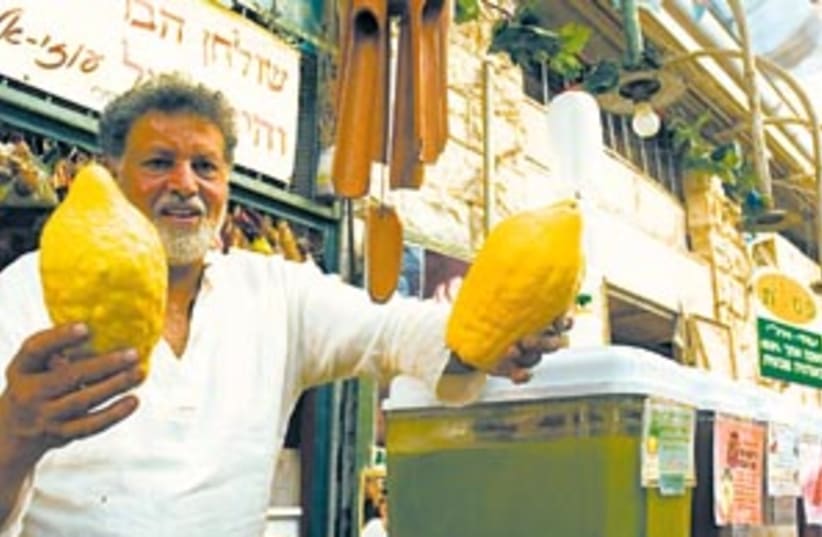| More about: | Mahane Yehuda Market, Jerusalem, Panama, Israel |
The etrog medicine man
They call him the "etrog medicine man." But Uzi Eli says his etrog-based juices, tonics, pastes, and creams are more than just medicine; they are a way of life.


| More about: | Mahane Yehuda Market, Jerusalem, Panama, Israel |